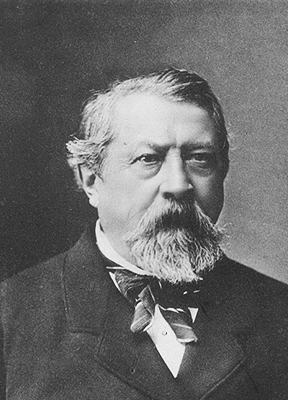Miklós Ybl

(Székesfehérvár, April 6, 1814 – Budapest, January 22, 1891)
Miklós Ybl (Székesfehérvár, April 6, 1814 – Budapest, January 22, 1891) was one of Europe’s leading architects in the mid to late nineteenth century as well as Hungary’s most influential architect during his career.
After graduating from the Vienna Polytechnic, he worked in the office of Mihály Pollack from 1832 and Henrik Koth from 1836. His first major works are representatives of the romantic Romanesque style studded with oriental elements. His most significant public works were almost determinants of Budapest’s cityscape. Although he did never break with the Romanesque forms, as a result of his second study trip to Italy from 1860 he was attempting to recreate the Italian Renaissance style. In both the early and more mature stages of his art, he created works of excellent Neo-Renaissance style. His main work is the Opera House (1879 – 84), which can be considered an outstanding work of contemporary European architecture with the recreation of Palladio’s picturesque main façade, as well as its interiors and its staircase. He also built a long line of castles along with a number of churches and tenement houses in the countryside. Ybl is the greatest Hungarian architect of the second half of the 19th century. In 1953 an annually awarded architectural prize called Ybl-díj was established in his memory.



